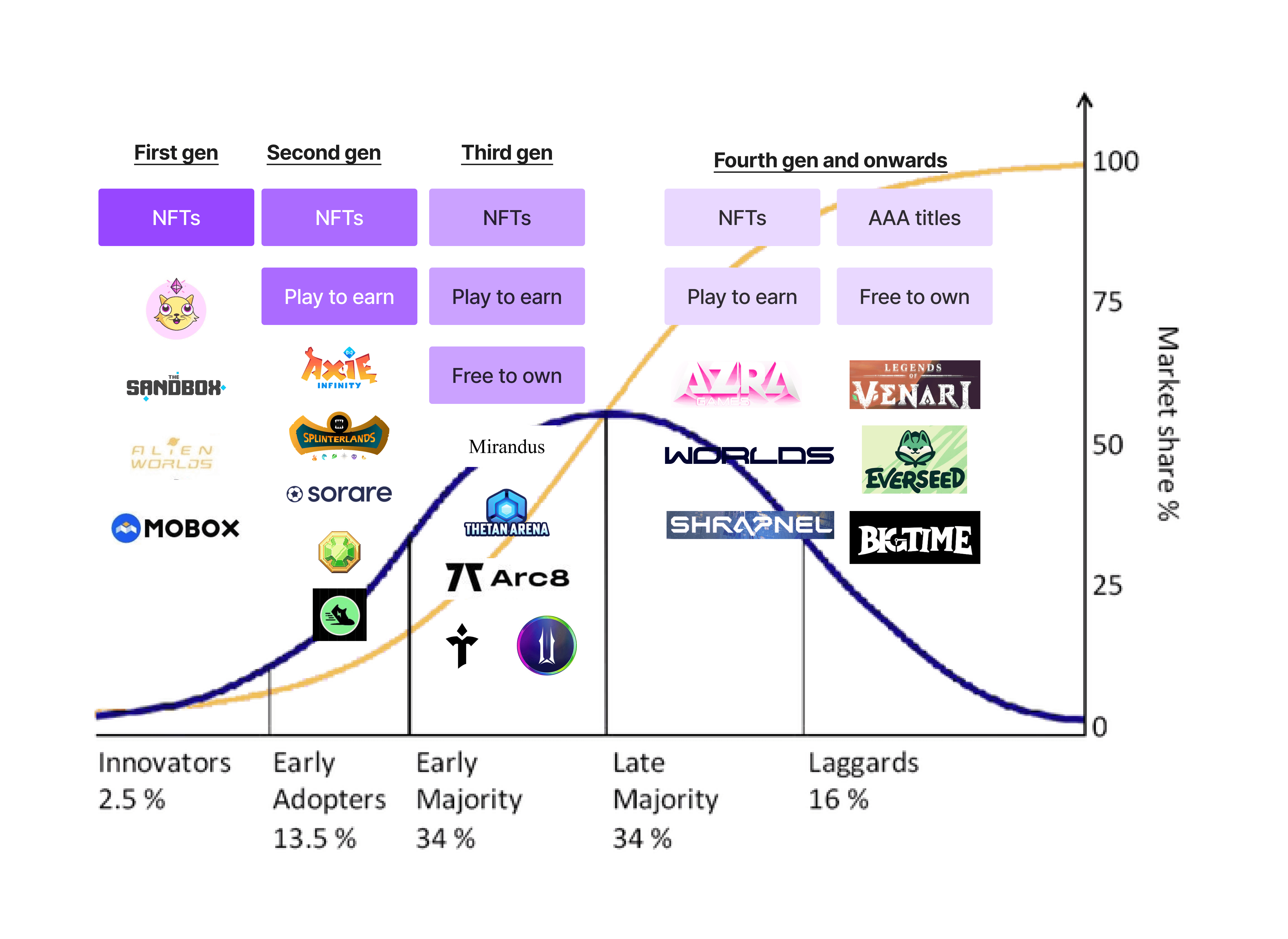Beyond the Early Game Examples and the Rise of New Categories
There are many opportunities that new models like "free-to-own" and "play-to-earn" models can offer, but currently, most of the available projects simply don't live up to their legacy counterparts. This has led to many doubting that this new generation of games can penetrate mainstream interest. However, this may be short-sighted. It's not the first time that a new technology has been dismissed based on its earliest examples.
Web3 games incorporate blockchain elements, including smart contracts and non-fungible tokens (NFTs), to create virtual assets that can be verifiably owned and traded by players without the intervention of a third party. This innovation puts a high degree of power back into players' hands.
Early productions don't define the future potential
While many Web3 titles have failed to galvanize their fanbase without their once-lucrative financial boons, this has led to many detractors of the blockchain gaming genre who assume that current offerings are the zenith of what's possible, with the sector dismissed as a fad. However, looking at the recent past -particularly the monolithic rise of mobile gaming- demonstrates that the earliest products should not define future potential.
The classic game Snake was among the most popular early mobile titles when Nokia ported it to its line of mobile phones, with millions playing worldwide. At that point in history, anybody using their phone for gaming could only be called a casual gamer, and a similar story emerged as what we are seeing today.
There are many parallels between the rise of mobile gaming and what we see now. What killer apps may break open the scene to a larger audience remains to be seen, but in 10 years, it's likely that these types of titles will simply exist alongside their home console and mobile brethren.
How "Blockchain Gaming" got started

From Kryptokitties and their lack of user engagement (despite having breeding capacity) to P2E with Axie, onboarding thousands of new players to the upcoming third generation of games will start bringing in the larger mainstream gaming community as production value increasingly aligns with traditional AAA games (together with the economic incentives that come with play-to-earn).
The third generation of games is here with the next level free-to-own. Free-to-play started because of piracy. It was a first step to distribution, engagement, etc. then you start monetizing by buying upgrades and items, etc. and finally you are locked in the system with assets you don't really own.
The next evolution, proposed by Gabriel Leydon is free-to-own, which is free with a step further. It's not only free to play, but you can also own items that have value even before playing the game. Essentially, this extracts the items that everyone is already paying for, with $120B of items sold every year on mobile phones alone.
Evolution beyond free-to-play and ownership of in-game items
Players are incentivized to own the item, so they now own the item and can develop further value to it. Essentially, this democratises the free-to-play economy and gives it out for free.
But why stop here? Because of the crypto programmability, you can do pretty much anything with payments, new token types, new timeframes, variables, etc. It's a mistake to look at today's state of crypto and think that's the only thing we'll be able to do. It's an imagination problem.
The world we're going to is not limited to digital land availability, but rather 3M NFTs given out for free to 3M different wallets. What will be the intrinsic value of these NFTs? Probably zero! (everyone is going to have one for free!), but the most successful ones will be the most desired ones despite the fact that there are millions of them.
Virtual items cost literally zero to create, why wouldn't you just give this for free? Attention is the ultimate currency! People expect they'll need some token to buy some stuff, but actually, they'll get something for free and eventually move to crypto. That's the most probable end-game.
If you have more questions/ideas/queries, join our Developer Discord and let us know there. Furthermore, you can follow us on Twitter for our updates as we keep shipping.